For the better part of almost 10 years I’ve called London home. Never in my time here in one of the world’s most vibrant cities have I seen anything close to the despair that I’ve witnessed in the last four days in the wake of the Brexit vote.
It began on the morning of June 24. As far as the weather was concerned, it was one of the most beautiful, sunny days that London has experienced yet this summer—a massive change from just 24 hours earlier, when a month’s worth of rain fell in just an hour in several parts of the city.
Yet despite the clear skies and warm, breezy day, everyone moved through the city as if they were trying to push their way through some kind of thick invisible haze. Everyone seemed distracted, subdued, even in shock. That is, of course, because in the early hours of that morning, it was announced that the Leave campaign had won the EU referendum by a narrow margin. The United Kingdom would willingly leave the European Union.
By the early afternoon, you heard stories of some people breaking down in tears at work. You saw people leaving early that day to congregate in pubs. But unlike most London summer evenings, where postwork pub life is jovial, even boisterous, there was a palpable shock among the crowds. Everyone was talking about Brexit. The most common refrain heard was, “I feel like this is a bad dream.” There was sadness, even some tears. But more than that, there seemed to be an anger that consumed many Londoners, one that was aimed at the rest of the country. Many blamed the people living outside of the capital for the results. Unlike London, where a majority voted to stay in the EU (59.9% voted Remain), most towns and villages in England and Wales voted to leave.
An early protest formed outside Downing Street that evening (which you can see in the pictures in the slideshow above). This protest was relatively small—only a few hundred people. But the majority of these people were teenagers; many were 16 or 17 years old who weren’t old enough to vote in the referendum. A phrase I frequently heard was, “My parents’ generation robbed us of our future.” People who said this were referring to the fact that, statistically, people over the age of 45 tended to vote Leave, while younger people tended to vote Remain.
By Monday, when stock markets and the pound fell at historic rates for a second day and over $3 trillion dollars was lost in financial markets, the mood in London seemed to have turned from shock to despair. The ruling party, the Conservatives, had divided during the referendum and now the shadow government, Labour, was tearing itself apart, with many members blaming party leader Jeremy Corbyn for losing the referendum. Not only was the economy in a tailspin, it seemed the political foundations of the country were disintegrating.
Some Londoners created a Facebook event for a rally at Trafalgar Square to protest the referendum result and also demand a new referendum—and some even called for London to secede from the U.K.. By Tuesday, the day of the scheduled rally, over 50,000 people were scheduled to attend, but just hours before launch, the event was postponed. Organizers talked to city officials who had safety concerns. Trafalgar Square can only hold 10,000 people. The rally had at least five times that many scheduled to show.
Yet despite the cancellation, thousands still showed nonetheless—and in the pouring rain—to protest the Brexit result. This time it was not just young people, but city workers, EU nationals, and British pensioners. Among the rallying cries for a new referendum, many in the audience spoke of their feelings of being betrayed by Boris Johnson—formerly a popular mayor of London, but the man who many now claim was the reason the Leave campaign won. “Traitor” was a common word used to describe him. Others directed their anger toward their fellow Brits, blaming their pride and longing for an Imperial age long gone.
But most frequently, when you talked to anyone in the crowd—young, old, laborer, or banker—and asked them why they were at the rally in the pouring rain, their response was the same: “Because this is London. I’m European first and British second, and I’m not giving up on my country and its future in the EU yet.”
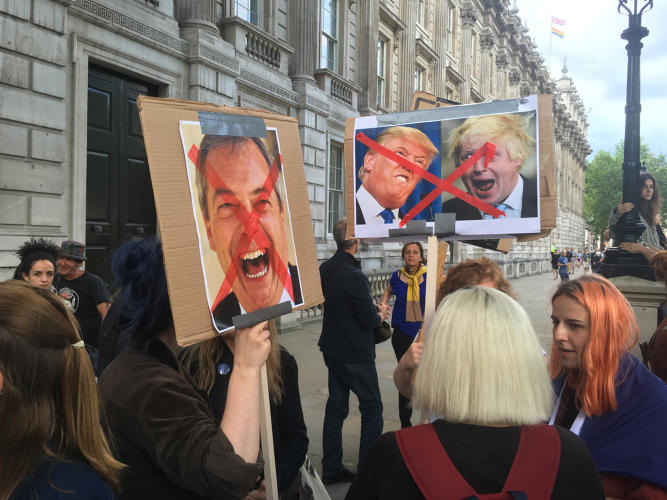
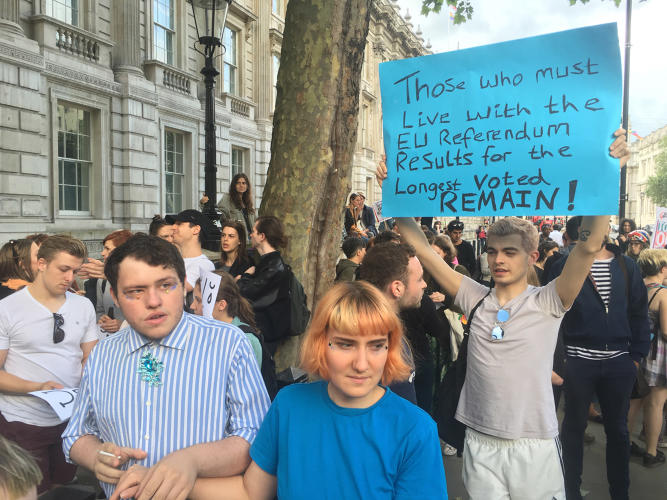
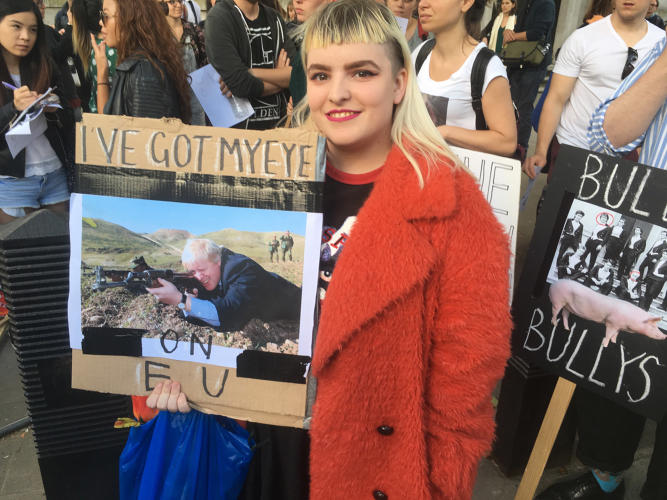
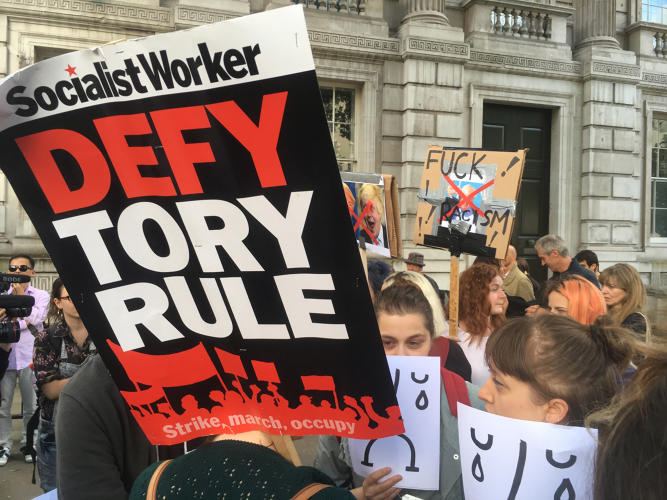
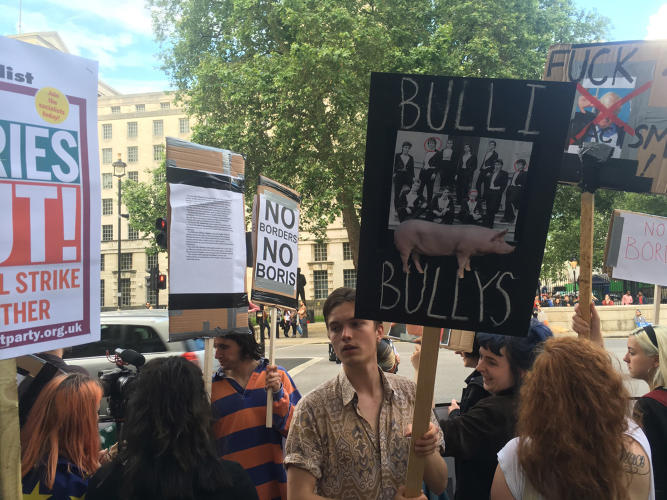
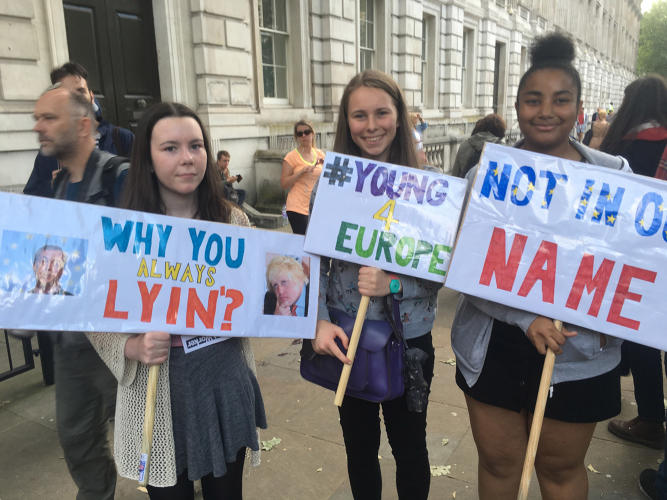
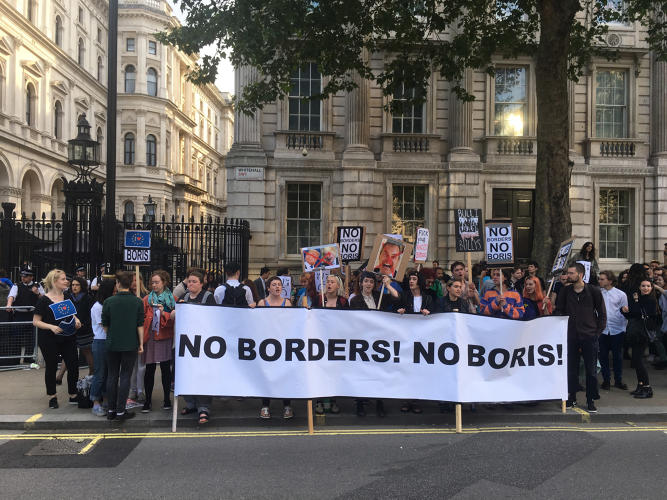
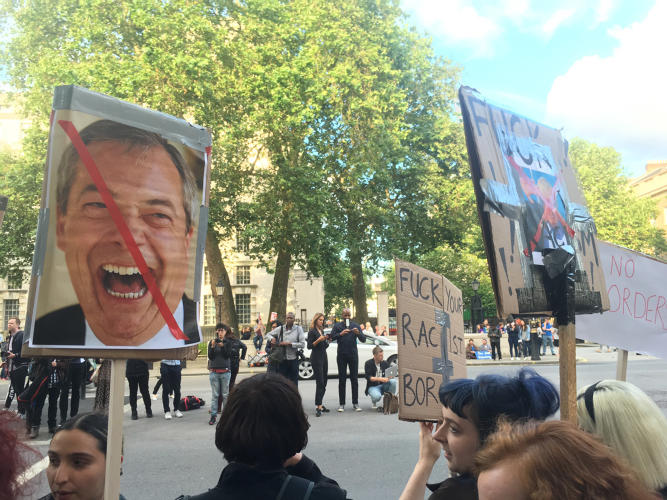
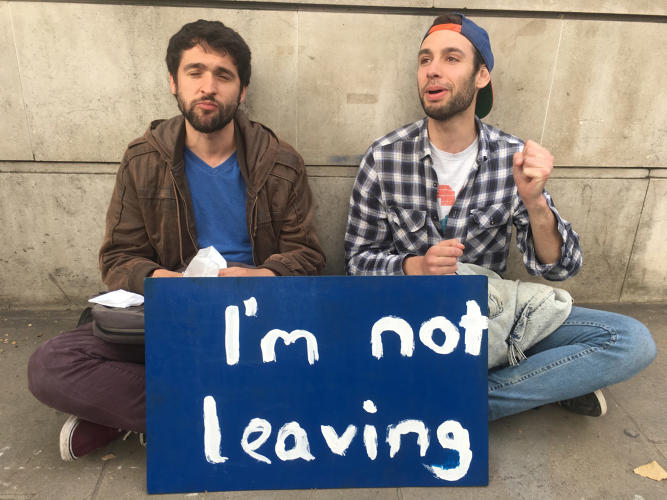
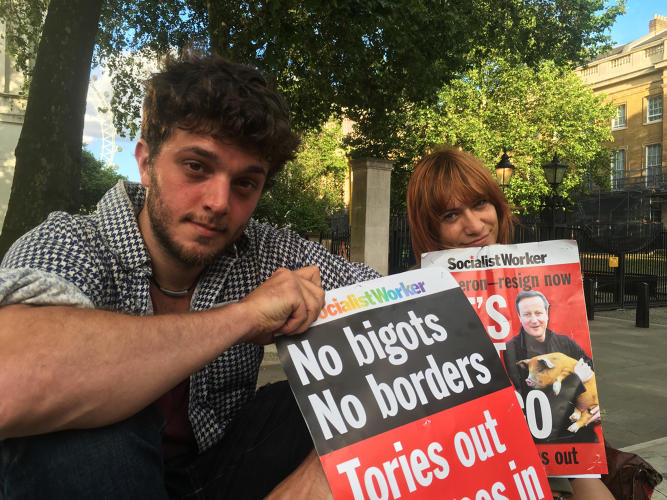
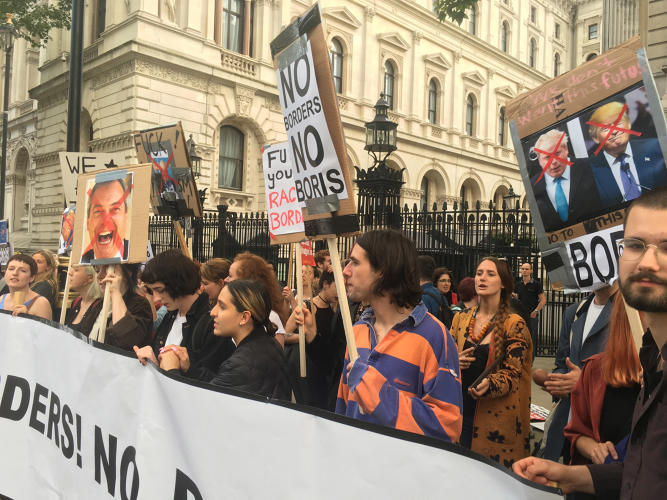
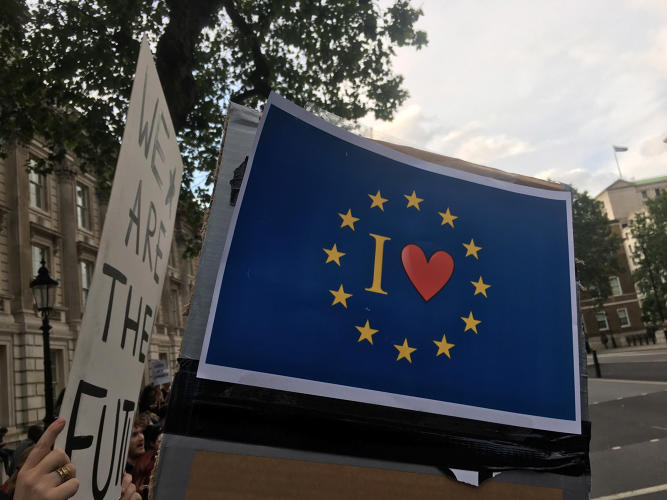
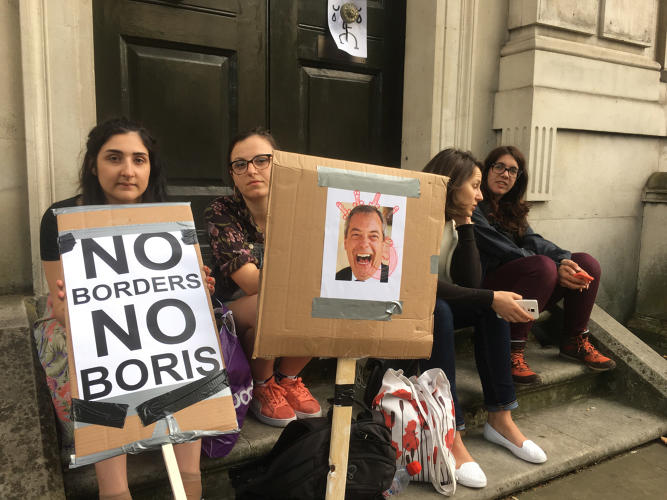
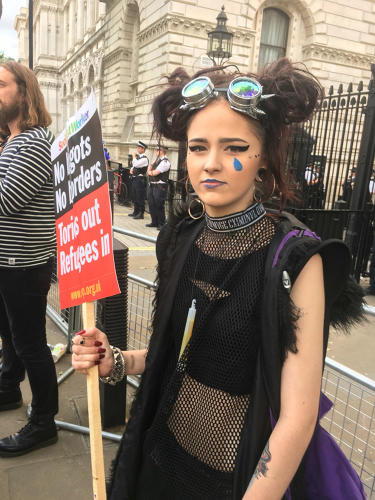
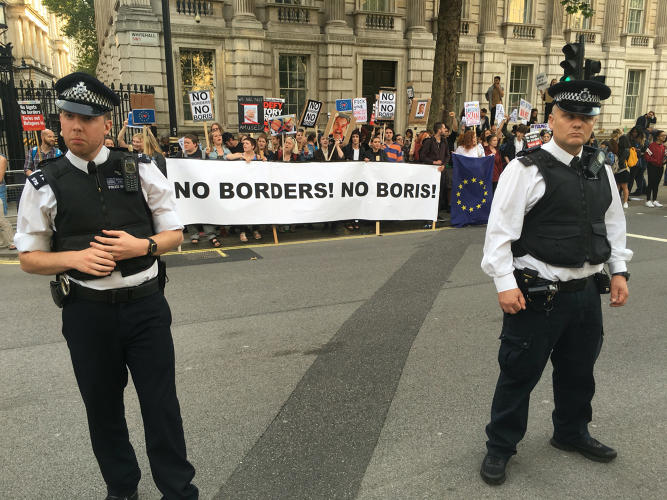
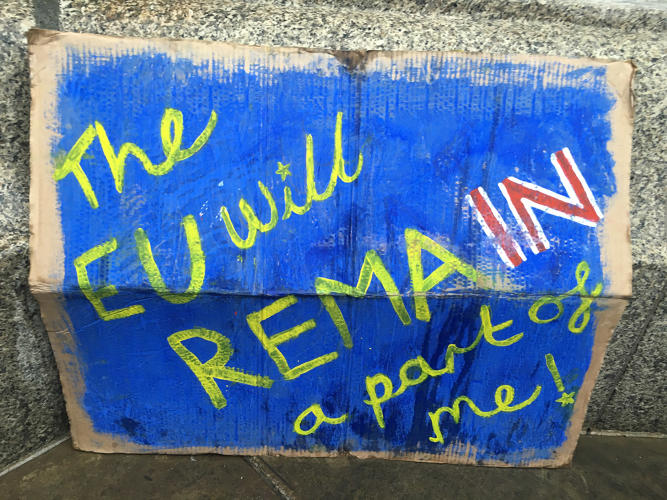
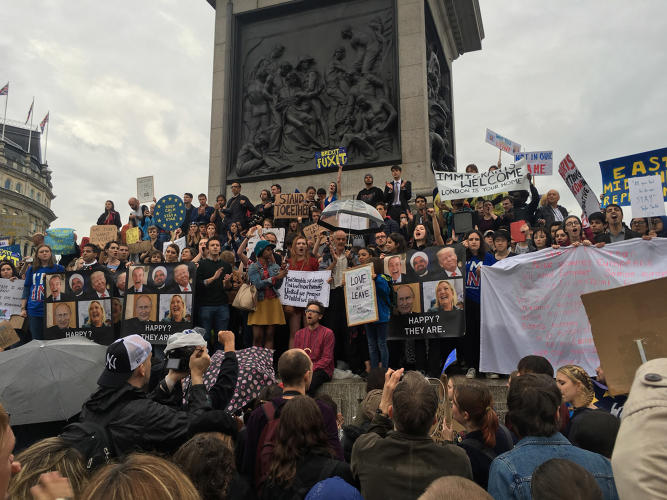
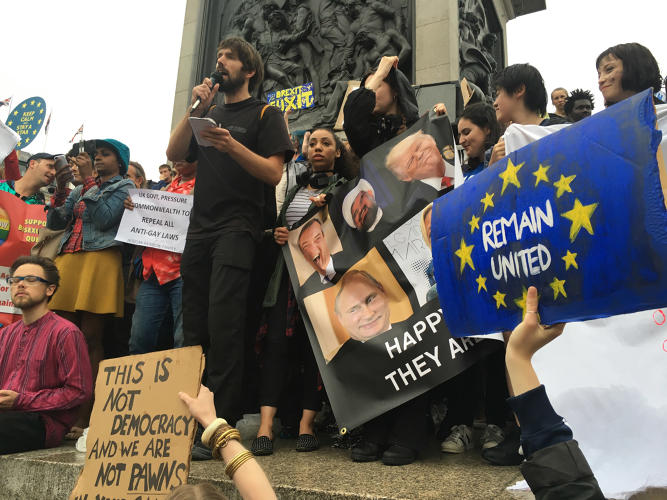
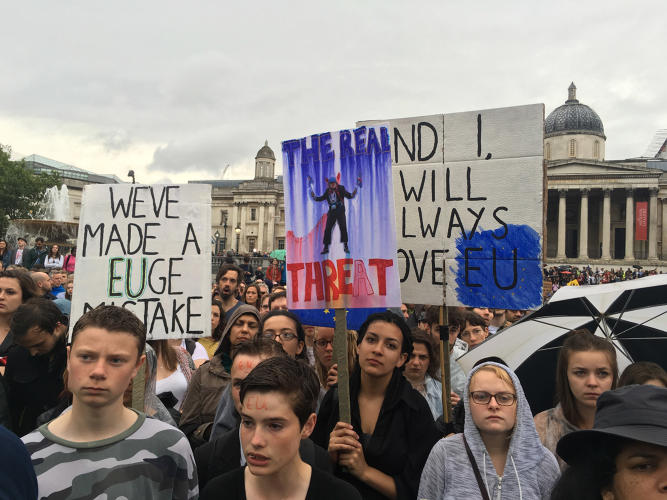
\
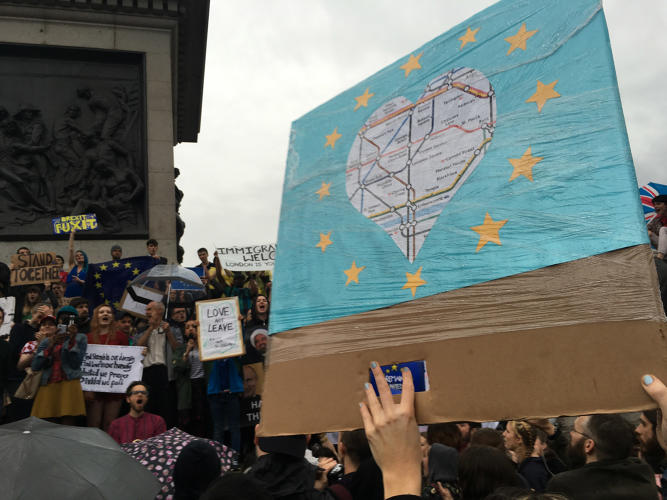
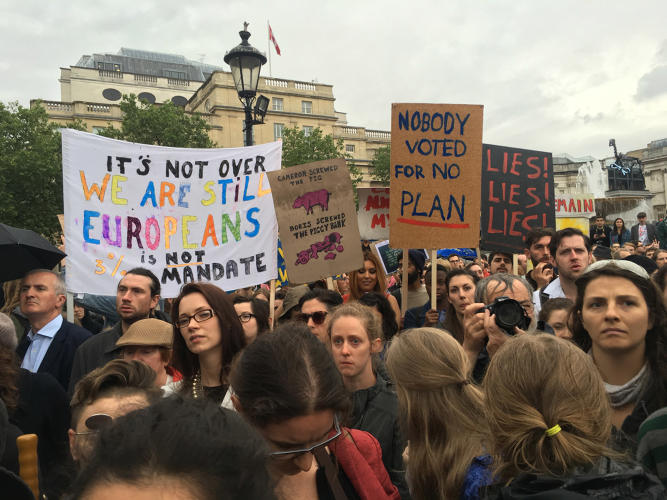
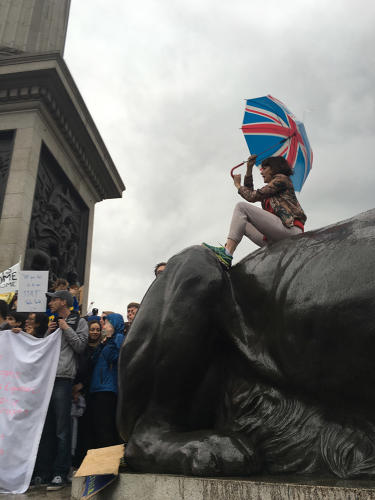
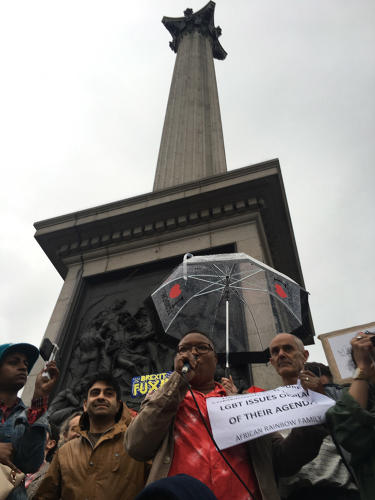
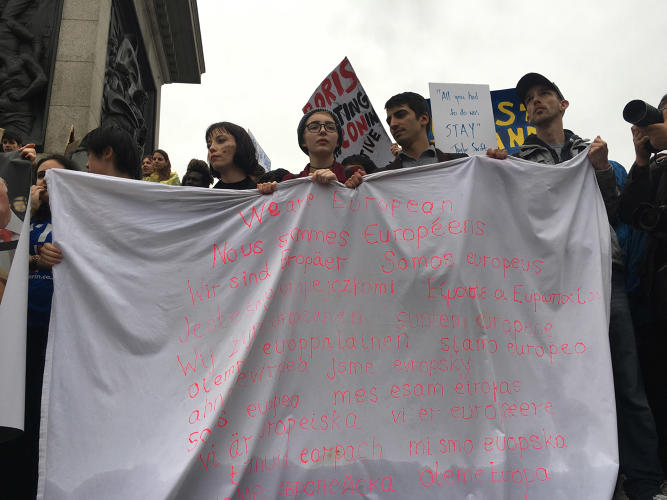
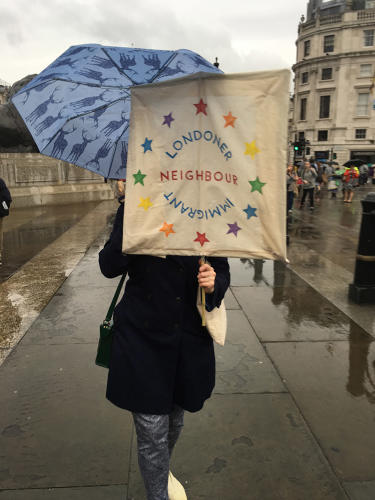
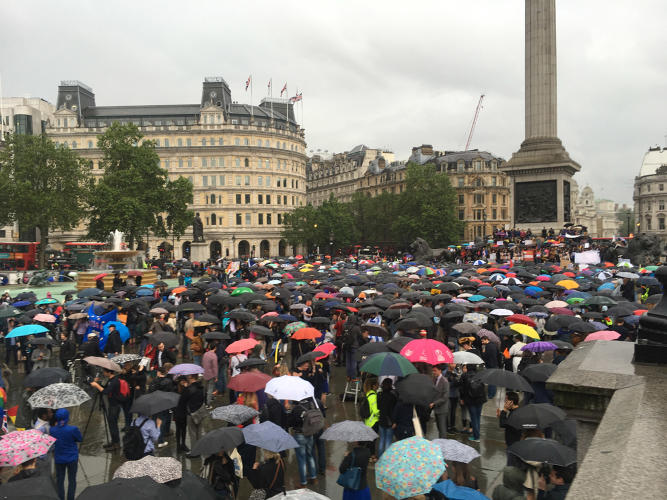
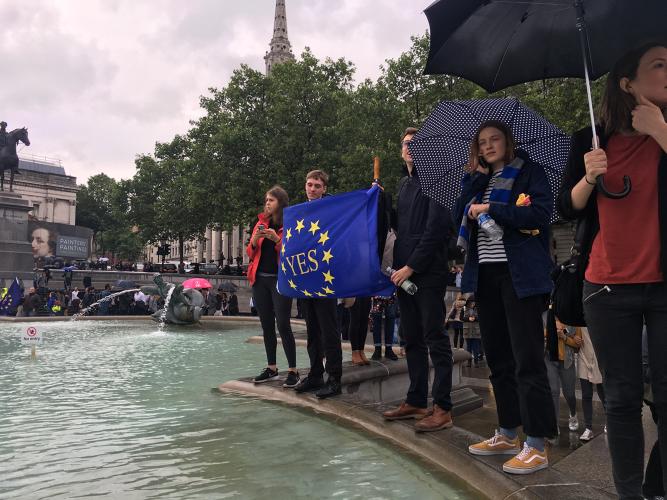
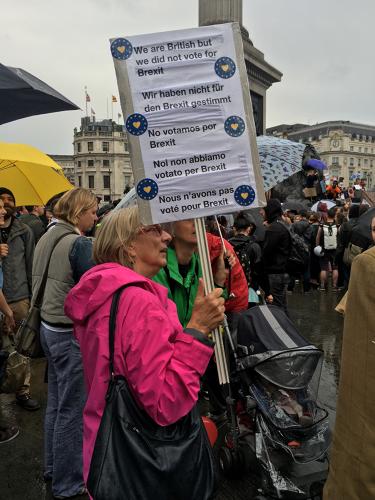
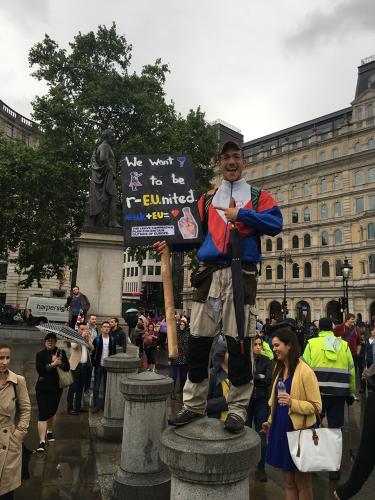
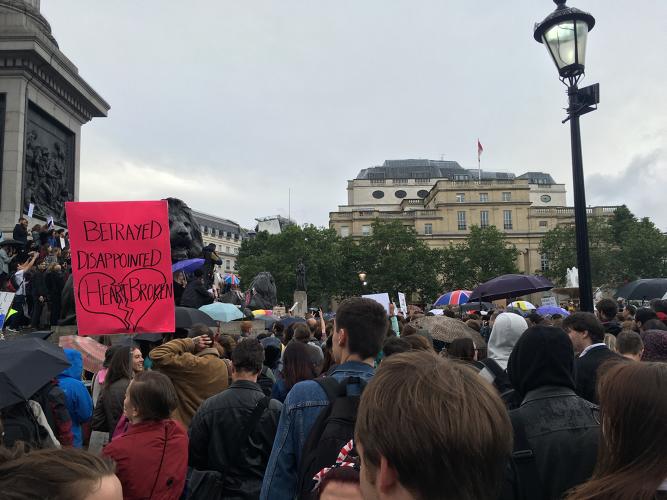
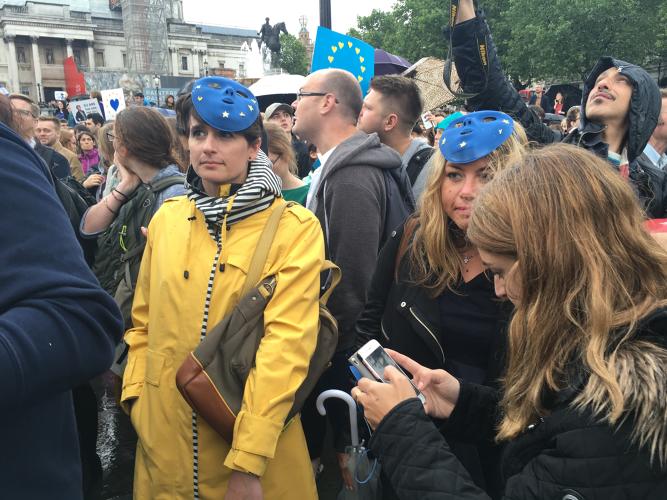
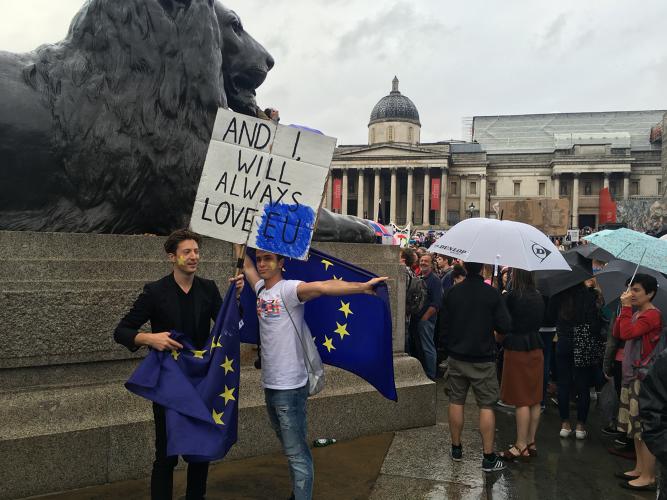
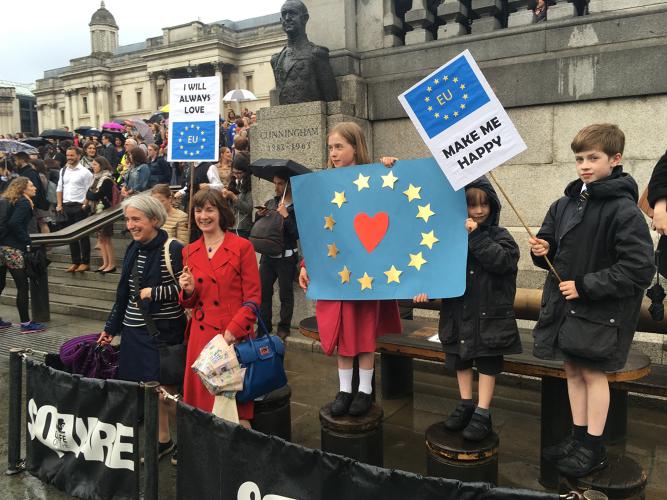
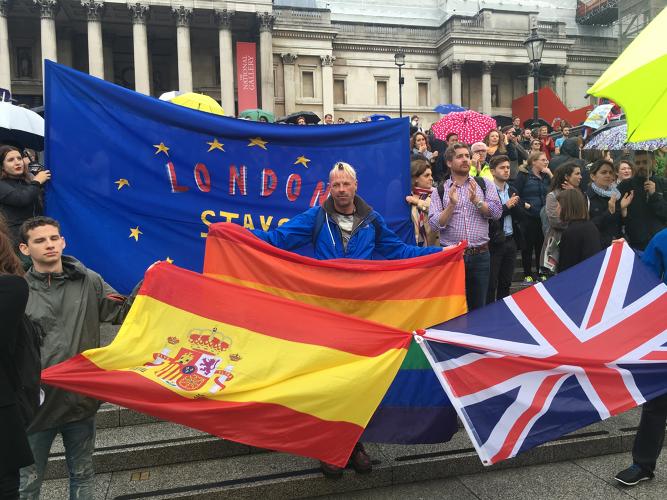
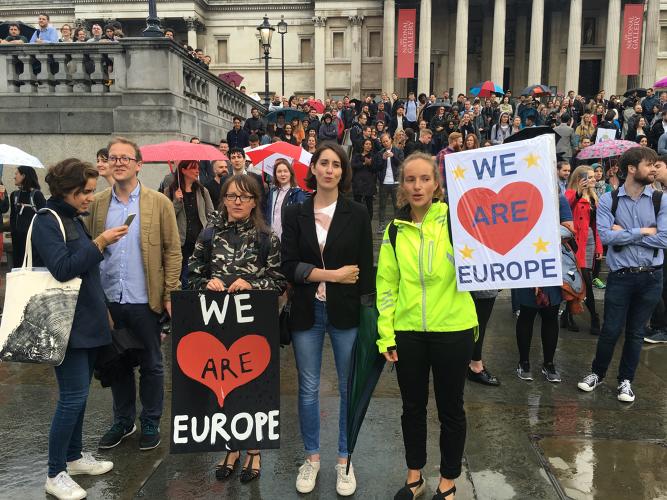
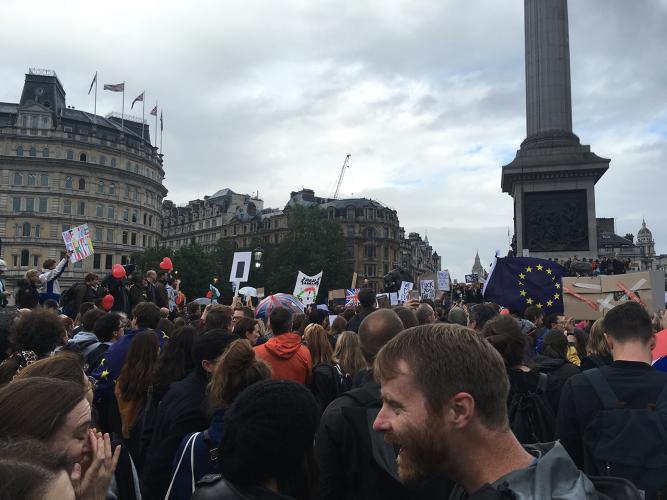
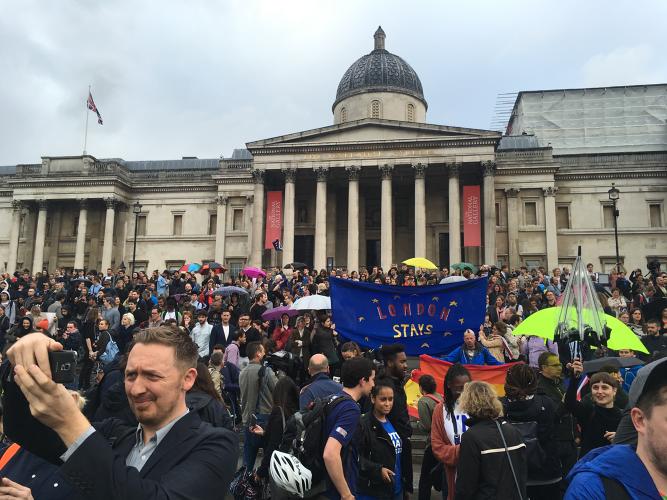
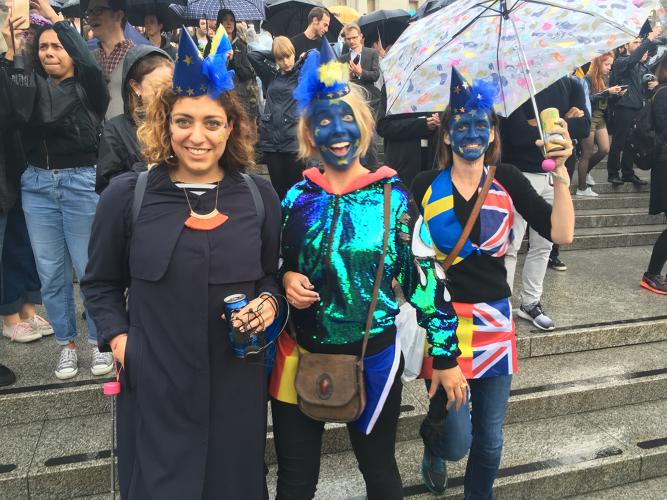
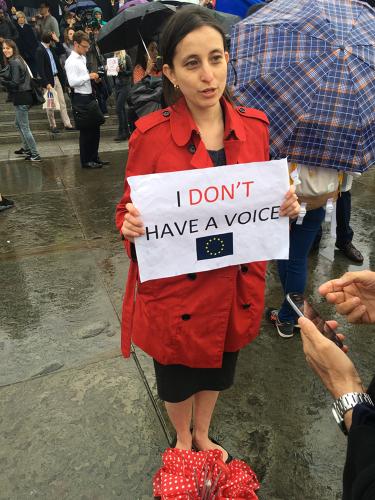
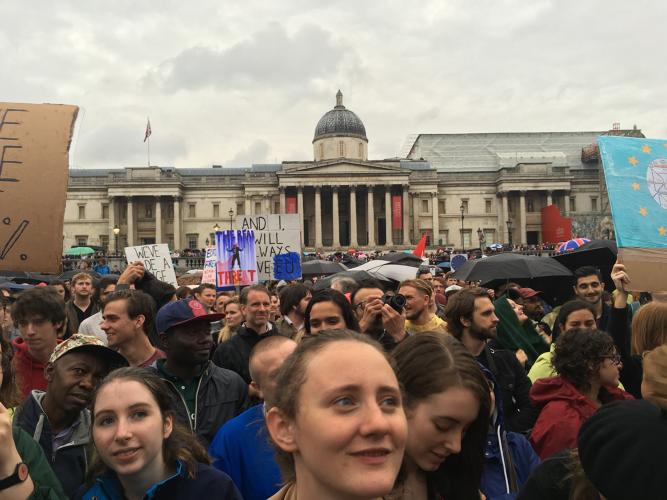
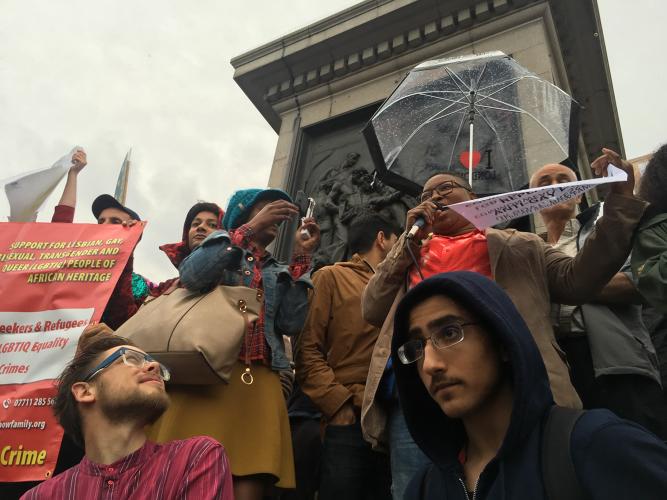
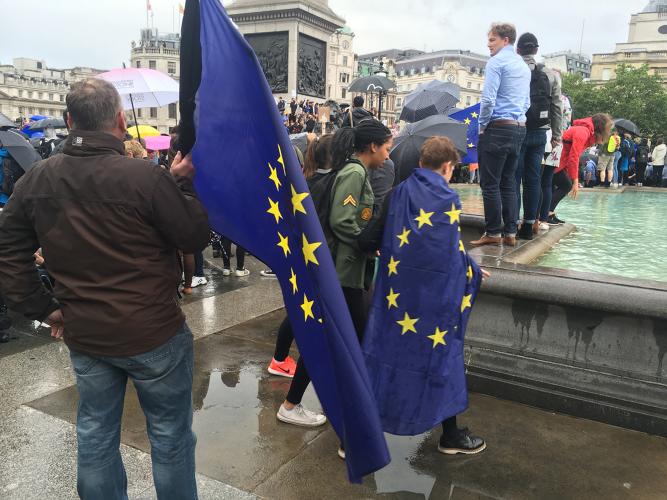
Fast Company , Read Full Story
(19)